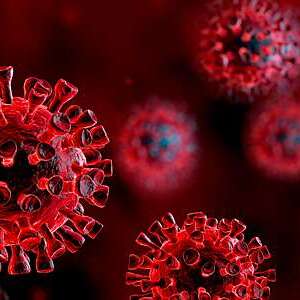The head of the "Ritual" spoke about the funeral peaks due to the waves of the COVID-19 pandemic

Compared to pre-pandemic times, the number of burials in Moscow has now increased markedly - by 25-30%, as well as mortality, Artem Ekimov, head of the largest funeral service of the Ritual State Budgetary Institution, said in an interview with RBC. “This growth is spasmodic and is associated with the so-called pandemic waves,” he said. “Of course, the volume of our work is increasing in proportion to the share of the institution in one or another segment of the funeral services market.” However, the status of a state institution, which GBU Ritual has, as well as the modernization of production facilities, helped the funeral service to withstand the increased workload. “At the stage of uncertainty, at the peak of the first wave in 2020, we could carry out burials of up to 600 bodies daily,” Yekimov recalled. “This is compared to 300 during the non-crisis period.”
In this case, the load first of all fell on the crematorium, he mentioned. Sometimes in 2020-2021, the share of cremations reached 70-72% of the total volume of burials (compared to 58% in pre-pandemic years). Now, however, the figures for the number of burials "are already closer to demographically adequate, and are more typical of periods between waves," Ekimov said. “This is not June-July this year and not November-December and May 2020,” he added. According to him, there were no queues in Moscow for either burials or cremations during the pandemic.
As RBC was told in the State Budgetary Institution "Ritual", in September of this year, the funeral service carried out 7,810 burials, in total from January to September - 85.5 thousand. For comparison, in September last year there were 8,851 burials, and in total for the same period in 2020 year - 87.2 thousand. These figures differ significantly from the pre-pandemic period: from January to September 2019, 77.7 thousand burials were carried out, in 2018 - 76.1 thousand.
The Moscow State Budgetary Institution "Ritual" is the main operator of funerals and cemeteries in the capital, the successor to the Spetstrust enterprise, which worked in this area back in the USSR. According to Yekimov, the institution's income for 2019 amounted to 3.4 billion rubles, for 2020 - 4.2 billion rubles (for comparison, in 2014 in 2014, the income of its predecessor, SUE Ritual, was 1.9 billion rubles) . GBU income is growing strictly in proportion to mortality and the number of burials, he noted, as well as due to an increase in the number of services offered.
According to the latest data, as of November 12, the death rate from coronavirus in Moscow amounted to 96 people per day (with an incidence of 5.1 thousand people). This is a fairly high figure; at the peak in July, the death rate in the capital was 121 people per day.
Read together with it:
- Не как в кино: сколько весят сумки инкассаторов и что они находят в банкоматах?Новости темы Как производится инкассация банкоматов и сколько весят сумки с деньгами? Об этом и не только в проекте "Честный рассказ" поведал старший инкассатор отдела инкассации и перевозки Регионального управления №1 г. Минска Василий Агарелик. - Я как оператор отвечаю за инкассацию банкомата. Со мной в паре работает старший группы, который в большей степени отвечает за безопасность и, разумеетс...
- Модели с OnlyFans задолжали бюджету Украины $9,3 млн налоговПо состоянию на 1 сентября украинцы, зарабатывающие на размещении контента на платформе OnlyFans, не заплатили 384,7 млн грн налогов, сообщила Государственная налоговая служба Украинцы, зарабатывающие на размещении контента на платформе OnlyFans, задолжали государству 384,7 млн грн ($9,3 млн) налогов, пишет «Экономическая правда» со ссылкой на данные Государственной налоговой службы по состоянию н...
- Московская область сохраняет лидерство в производстве и экспорте сыра в РоссииПо итогам семи месяцев 2025 года Московская область подтвердила статус ведущего производителя сыра в стране. Регион обеспечивает практически четверть общероссийского объёма и является ключевым игроком на международном рынке. В Министерстве сельского хозяйства и продовольствия Московской области сообщили, что за январь-июль 2......
- Как профилактика меняет борьбу с главной причиной смертности в РоссииСозданная в России сеть сосудистых центров доказала свою эффективность в спасении жизней. Сегодня приоритетными задачами государства становятся управление факторами риска и повышение приверженности граждан лечению 29 сентября отмечается Всемирный день сердца — здоровье сердечно-сосудистой системы напрямую определяет качество и продолжительность жизни. В России профилактика, диагностика и лечение б...
- О самых распространенных причинах пожаров рассказали в МЧС2 октября, Минск. О самых распространенных причинах пожаров рассказал начальник главного управления надзора и профилактики МЧС Дмитрий Турчин на "Предупреждение чрезвычайных ситуаций в осенне-зимний период. Профилактика пожаров и гибели людей от них", которая прошла в БЕЛТА. "В республике наблюдается рост количества пожаров на 7,7%, и на 1......
- Премьер Финляндии призвал ЕС быть оборонным союзом, а не торговым блокомЧтобы избежать потенциальной угрозы от «враждебных государств», Евросоюз должен укреплять оборону и сотрудничать в данной сфере, заявил финский премьер Орпо. Он отметил, что это не будет значить, что Брюссель «вытесняет» НАТО Петтери Орпо Евросоюз должен взять на себя «беспрецедентные полномочия», чтобы защититься от «растущих угроз». Об этом сказал премьер-министр Финляндии Петтери Орпо, сообщает...
- "Cardboard Superpower." What is Poland prepared to take into 2026?Photo: Unsplash The Polish government has submitted its draft 2026 budget to the Sejm. In short, the hole in the Polish budget is growing even wider, and the national debt is on the verge of skyrocketing. Meanwhile, military spending is breaking records, cementing Poland's status as NATO's leader in defense spending as a percentage of GDP. However, the value of such leadership is questionable. Or ...




























































